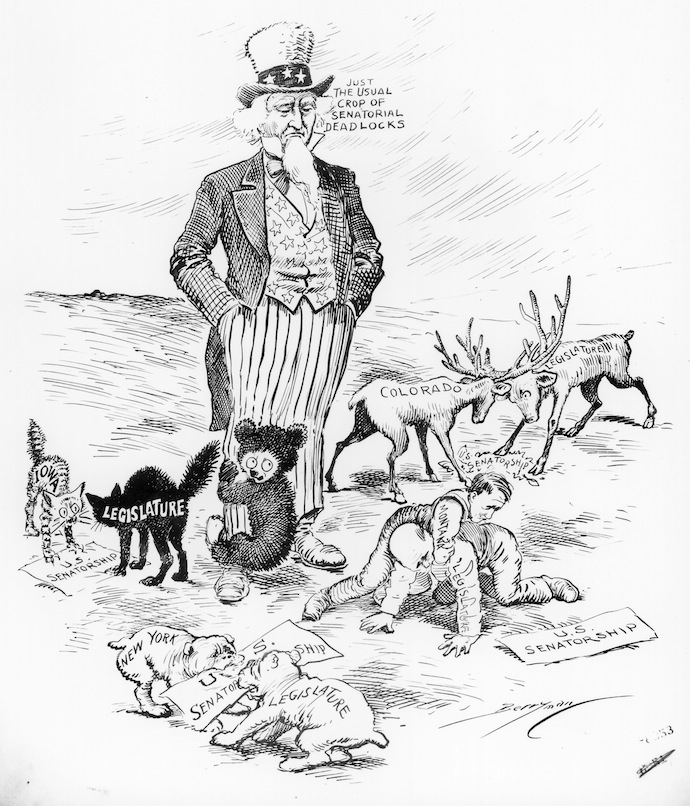A republic is a form of a democratic gov't. We seem to be getting into semantics here, if you're just talking about true democracies then we haven't had one of those in what, 2500 years? Which kinda makes your request for an example where democracy has worked well kind of moot.
Semantics? What it semantics that caused the Founding Fathers to create a Republic rather than a Democracy? Was it semantic that caused them to only give those in the House directly elected by the people only 2 years to serve and those appointed in the Senate 6 years?
No.
From Wikipedia:
The Bill of Rights is the first ten amendments to the United States Constitution. Proposed following the often bitter 1787–88 battle over ratification of the U.S. Constitution, and crafted to address the objections raised by Anti-Federalists, the Bill of Rights amendments add to the Constitution specific guarantees of personal freedoms and rights, clear limitations on the government's power in judicial and other proceedings, and explicit declarations that all powers not specifically delegated to Congress by the Constitution are reserved for the states or the people.
The Bill of Rights is precisely democracy in action, representatives hammered out an agreement over the distribution of power between the federal and state and local gov'ts, along with the guarantees of individual rights and freedoms. There's no better example in world history where democracy has worked any better, and certainly FAR better than any other form of gov't that has ever existed. So I don't know what you are complaining about, if you're looking for perfection you ain't going to find it in any gov't past or present. The framework we have is as good as it gets, our problems do not stem from our form of gov't but instead are derived from our own failures.
When you say the founders created a Republic rather than a Democracy, well of course they did. What the hell else were they going to do? A Republic IS a form of Democracy, so I'm asking what are you trying to say? Surely you realize a pure democracy where the people directly rule themselves is ridiculously impossible in a society of any size.
I suppose my main objection is the notion that mob rule works best or that simply being in the majority make you right.
For example, the majority of colonialists were not involved in fighting the British. The minority took up that mantle. Nor did the majority conceive of the Constitution. These events were not shaped by democracy. If put to a vote the nation probably would never have gone to war with the British crown.
A Republic may have certain aspects of democracy within it but clearly democracy made the Founders uneasy. This uneasiness can be seen as they created two chambers of Congress. Congressmen were both voted directly by the people and appointed by state representatives. It is rather telling that Senators, who were appointed by state representatives, were given more power and longer terms. This tells us how dim a view the Founders had regarding direct democracy and how Progressives glibly dismissed their reservations by changing how Senators achieved office via direct election.
OK, I gotcha. Mob rule, tyranny of the majority, doesn't make you right. Very True. But you say that this doesn't work best. So I'm thinking, well what does, what's better? The alternative is a totalitarian state or oligarchy isn't it? That can't be good. Rolling with the majority may not always be the best thing, mistakes will be made even catastrophic ones. But the same is true for any other form of gov't, check out North Korea or Venevuela.
In any case, direct democracy isn't feasible anyway in any really large nation. The Swiss come sorta close, but they've voted for some really bad decisions IMHO. In this modern world it's too damn hard just to deal with everyday life without also having to decide every decision your country needs to make. Too many issues that are too complex, there just aren't easy answers in nearly every case. So, direct democracy won't work, but many of it's principles can be used in a republican democracy like what we have, and that's about as close to a working democracy as is possible in today's world.
